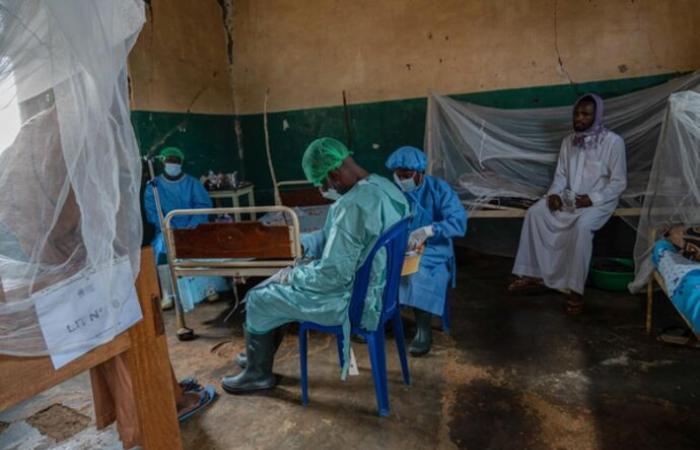>> WHO green light for a test to diagnose mpox
>> Mpox: the DRC starts a vaccination campaign
>> Africa: the death toll due to the mpox epidemic rises to 1,100
| Nurses care for patients with mpox in a treatment center located in Kamituga, a mining town in the east of the Democratic Republic of Congo. |
| Photo : AFP/VNA/CVN |
The African Union health agency warned Thursday October 31 that the mpox epidemic was not “still not under control” and called for mobilization to avoid a “more serious pandemic” than COVID-19.
The majority of deaths took place in the DRC, the epicenter of the epidemic, which launched a vaccination campaign in early October.
“So far, more than 50,000 people have been vaccinated against mpox in the Democratic Republic of Congo and Rwanda, thanks to donations from the United States and the European Commission”said WHO Director-General, Dr.r Tedros Adhanom Ghebreyesus, during a press conference in Geneva.
Furthermore, he recalled, the WHO and its partners (Africa CDC, the Coalition for Epidemic Preparedness Innovations Cepi, the Gavi Vaccine Alliance and UNICEF) have created “an access and allocation mechanism (called AMM) to promote equitable and rapid access to mpox vaccines”.
In this context, it has been decided for the moment that nearly 900,000 doses of vaccines will be allocated to nine countries, announced the Dr Tedros. The countries concerned were informed on Friday 1is November.
 |
| A man infected with mpox in Kamituga, in the east of the Democratic Republic of Congo. |
| Photo : AFP/VNA/CVN |
“This is the first allocation of the nearly six million vaccine doses expected to be available by the end of 2024” through this mechanism, he said, thanking the countries and partners who donated the vaccines: Canada, the United States, the European Union and 12 of its member states, and Gavi.
More than 1,000 people have died from mpox in Africa, where some 48,000 cases have been recorded since January, the Center for Disease Control and Prevention (Africa CDC) said on Thursday (October 31).
Mpox, previously called monkeypox, is a viral disease that spreads from animals to humans but is also transmitted between humans during prolonged physical contact, causing fever, muscle pain and skin lesions.
Two concomitant epidemics are raging in Africa, one caused by clade 1a in Central Africa, mainly affecting children, and another by the new variant, clade 1b, which affects adults but also children in another region, in the east of the DRC, and in neighboring countries.
The Dr Tedros recalled that “vaccination is only one element” of the fight against the disease, thus emphasizing that “although testing rates have increased significantly this year, only 40 to 50% of suspected cases are tested in the DRC.”
AFP/VNA/CVN






